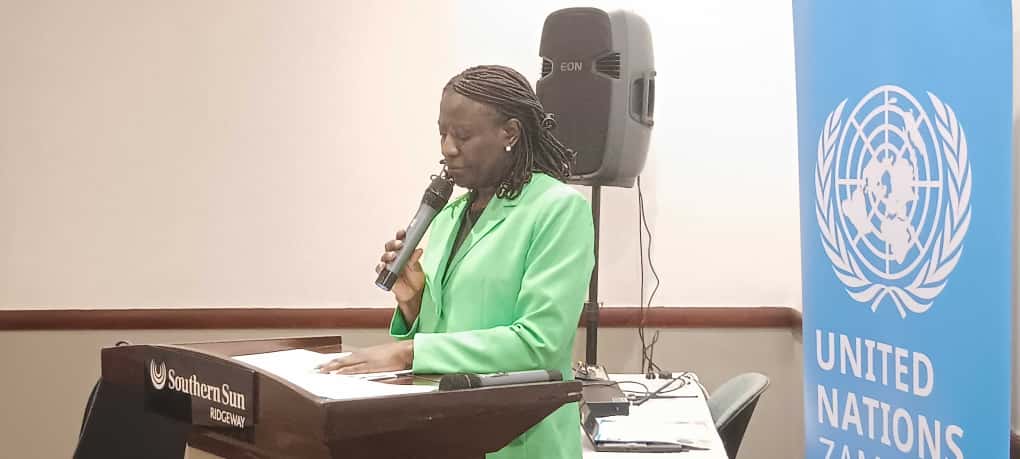
By Jeff Kapembwa
Zambia has reaffirmed its unwavering resolve to uphold the rule of law, fight climate change, and accelerate the Sustainable Development Goals (SDGS), among other democratic tenets, through localized actions to conform to the United Nations Global Pact for the future.
Last September, the United Nations member states consummated the Global Pact to compel all member states to, among other obligations; maintain International Peace and Security: prevent and resolve conflicts between nations and promoting
human rights for all.
Other commitments entails. developing friendly Relations that encourage : cooperation and understanding among nations and ensure the attainment of economic, social and cultural progress that seeks to improve standards of living and address global problems in the affected areas, Zambia included.
Permanent Secretary– planning and administration, Ministry of Finance, Prudence Kaoma reaffirmed Zambia’s undertaking to uphold the global pact in resolving, among other concerns, climate change that has devastated human lives and reversed economic gains attained by Zambia, like many of the afflicted countries, as part of the government’s call to action.
Speaking in Lusaka during a United Nations-Media engagement, Ms. Kaoma reiterated the country’s commitment to wholly localise and infuse the pact in the 8th National Development Plan as part of the country’s action to redress the concerns affecting governance as part of the national development agenda
“We are fully committed to localising the pact for the future. its principles and aspirations will be systematically integrated into our national development processes.”
The Global Pact will serve as a driver for the Government’s quest to seek to resolve persistent poverty and inequality, intensifying effects of climate change, dismantling the debt burden, while seeking to close the energy gaps and bolster digital connectivity and redress challenges affecting the youth.
There is a dire need for urgent reforms of the global financial architecture and to elevate the Least Developed Countries out of various forms of inequality through the pact.
Attaining SDGs remains cardinal in closing the financing gaps, bridge divide while seeking to operationalize the loss and damage fund that insulates countries from climate change effects through mitigation and adaptation practices,
Zambia wants to ensure the global commitments are harnessed to nurture national outcomes through the development of a National Action Plan to align the 56 commitments with the priorities of the Eighth National Development Plan (8NDP) and mainstream them in the next NDP phase but needs co-existence among all players.
And the United Nations-Zambia Resident Coordinator, Beatrice Mutali, stressed the essence and ambition of the global pact, quipping that global institutions need to respond to today’s realities and prepare for those ahead.
In Zambia, the Pact will strive to translate global ambition into la diverse agendas while prioritising financing, digital cooperation, and youth engagement, as these are central to the country’s development journey.
As the UN system marks the UN80, is repositioning itself to deliver, reshaping its work, becoming more coherent, more effective, and more accountable, to support Member States in realizing the commitments of the Pact for the Future.
The United Nations remains instrumental in fighting climate change through the Paris Agreement (UNFCCC), which sets the goal of limiting global warming to 1.5°C. It requires countries to submit strong national climate plans to reduce emissions and facilitate a just transition to renewable energy.
The UN system further supports the effort by raising awareness, coordinating international cooperation, and promoting Action for Climate Empowerment (ACE) to educate and engage the public, youth, and various sectors in climate action.
Key UN bodies like the UN Environment Programme (UNEP) and the Intergovernmental Panel on Climate Change (IPCC) provide scientific assessments and technical support to guide global policy and action.
